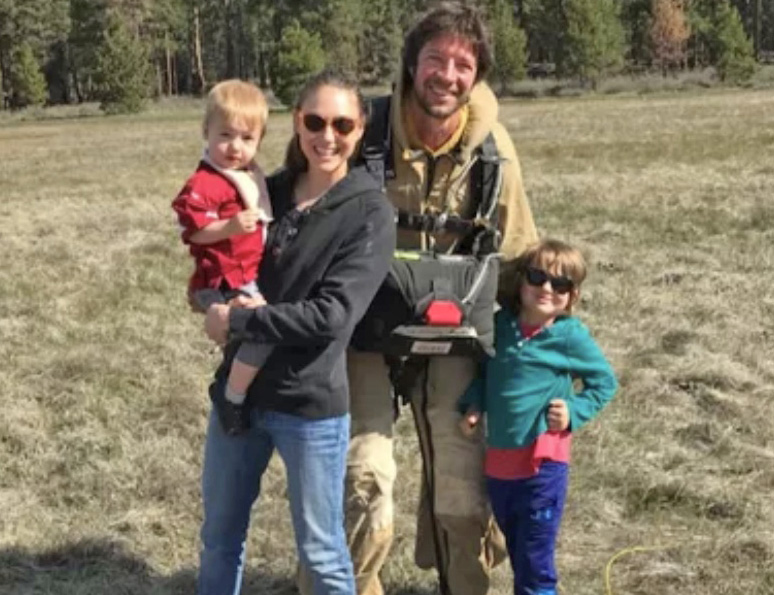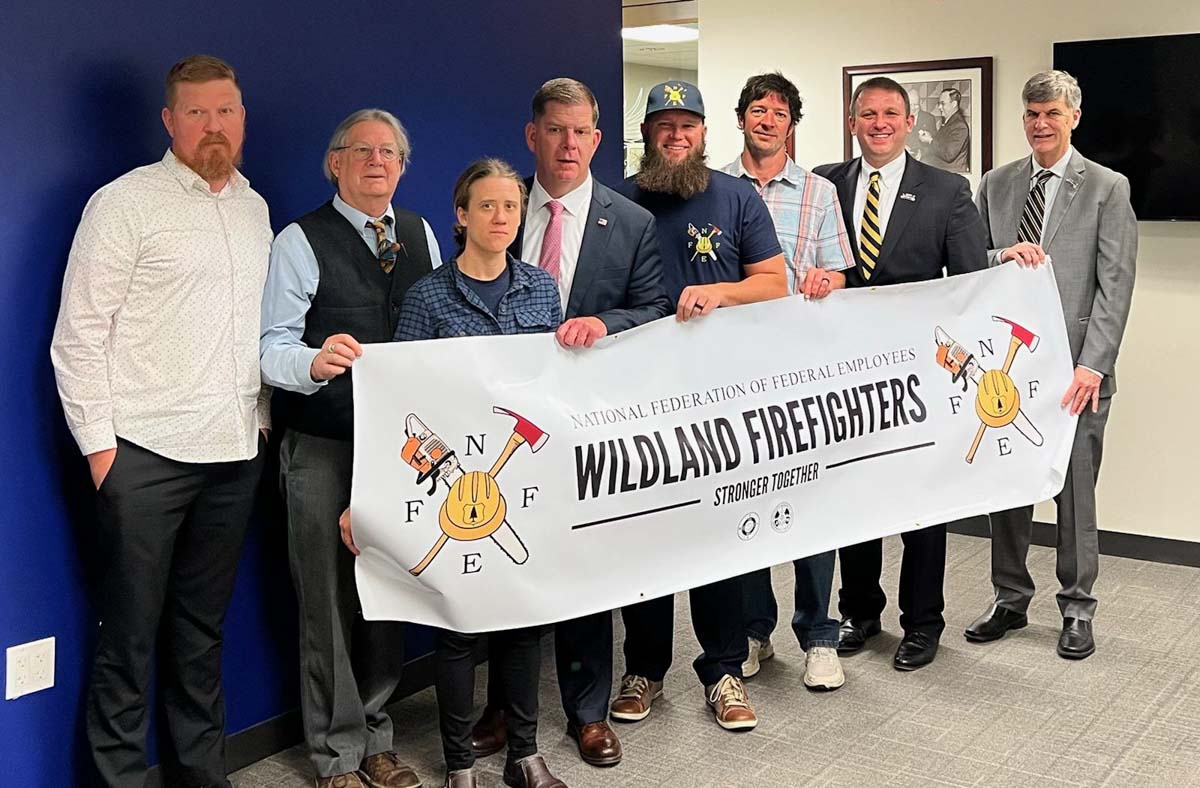
Ben Elkind was seriously injured during a training parachute jump on May 15. During his ninth year as a smokejumper (with six years before that on a hotshot crew) he sustained a dislocated hip and pelvic fracture during a hard landing. During surgery at the hospital they found six fractures and placed three plates and 10 screws to repair the damage.
While Ben is unable to fight fires for an extended length of time, he will not be able to supplement his base income with the usual 1,000 hours of overtime each year which in the past he has depended on to support his wife and two small children.
And then during a full body CT scan a nodule was discovered on his thyroid — meaning, cancer. Ben told Wildfire Today the cancer was caught early and is very treatable.
We have written about Ben previously, but that was before we were aware of the cancer. And the other reason we’re bringing it up now is that yesterday NBC News published a nearly four-minute video story about Ben and other similar examples of injured wildland firefighters.
For more than the last year Ben has been very involved working to improve the working conditions of federal wildland firefighters, being proactive in educating the public and other firefighters about what they can do to improve the pay, classification, health, well-being, and processing of worker’s compensation claims (see photo below). In 2021 he wrote an article that was published in The Oregonian and Wildfire Today. And now he finds himself as one of the examples of what can happen on the job to a wildland firefighter that can seriously affect them and their family.

There has been some progress during the last year in establishing a list of presumptive diseases for firefighters.
Pending legislation would create the presumption that firefighters who become disabled by certain serious diseases, contracted them on the job, including heart disease, lung disease, certain cancers, and other infectious diseases. The bipartisan Federal Firefighters Fairness Act, H.R. 2499, passed the House in May and is now in the Senate.
In April the Office of Workers’ Compensation Programs (OWCP), in FECA Bulletin No. 22-07, established a list of cancers and medical conditions for which the firefighter does not have to submit proof that their disease was caused by an on the job injury.
Consider telling your Senators and Representative to pass the Tim Hart Wildland Firefighter Classification and Pay Parity Act, H.R.5631. The name of the bill honors smokejumper Tim Hart who died after being injured on a fire in New Mexico in 2021. (More about the bill.) And ask your Senators to pass the Federal Firefighters Fairness Act, H.R. 2499.
You may want to make a donation to the gofundme account set up by the Redmond Smokejumper Welfare Organization to assist Ben and his family.


